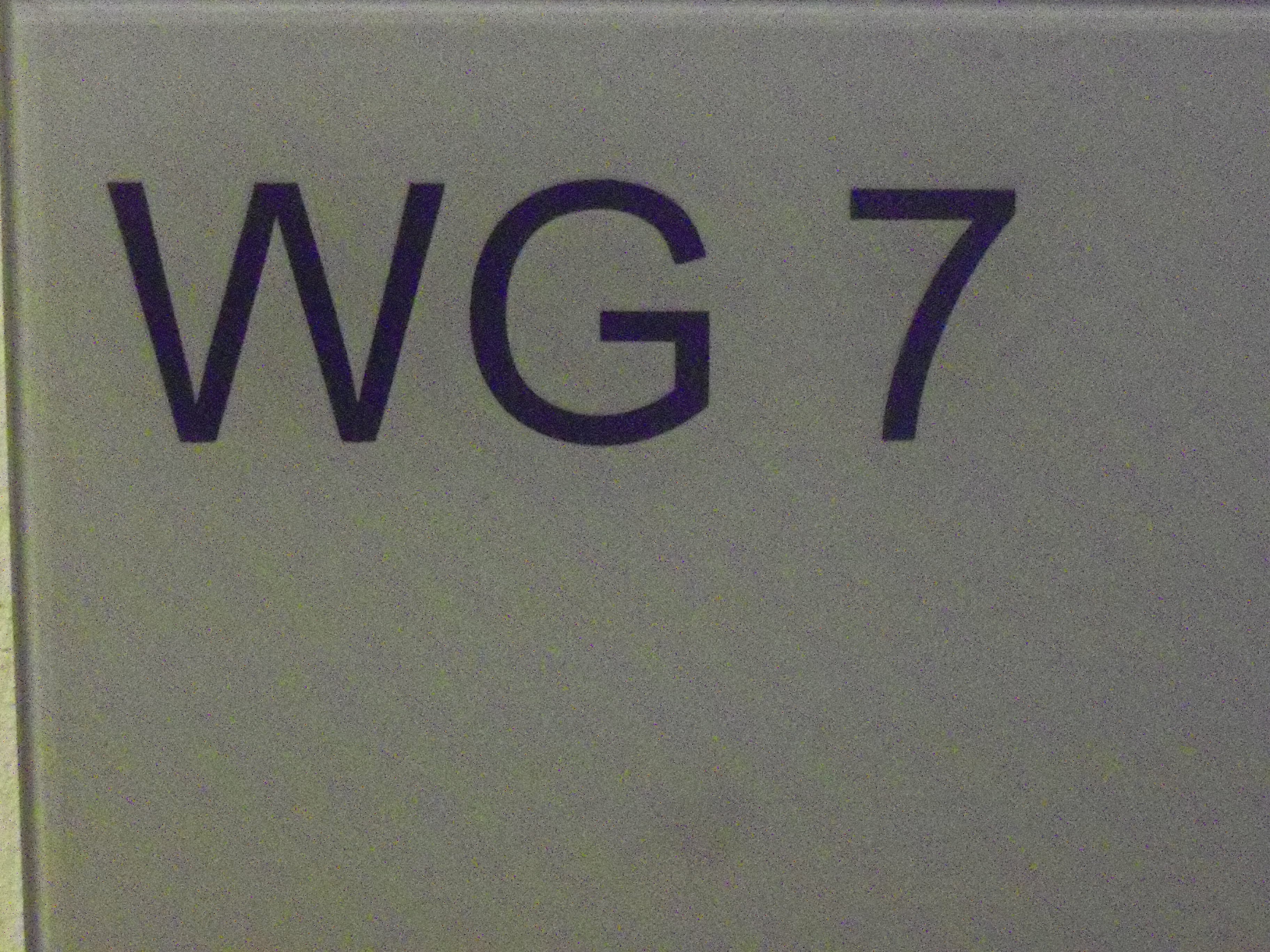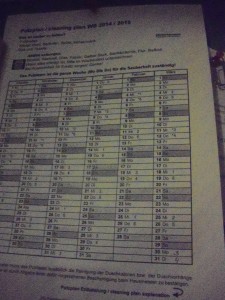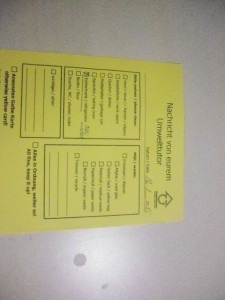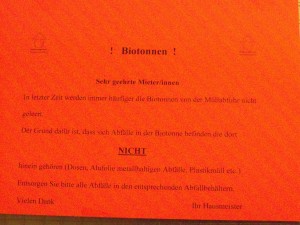So, being here in Germany is my first true experience living in an apartment. I live in a traditional style of student apartment called a Wohngemeinschaft (living community) or WG for short. Given that this is a somewhat closed version of an apartment, seeing as how it is specifically designed for students, there have still been quite a few things that are new to me.
1. Putzplan
The Putzplan is a schedule designed by the student housing service in order to fairly divide up the work that has to be done in the apartment. In my apartment, it means that every 3 weeks I have to clean half of the kitchen and my bathroom (since there are two bathrooms, and each person cleans the one they use) as well as take out the trash. This plan actually works very well, because it means that there are literally no question as to who is responsible for cleaning the common spaces and you pretty much know that come Monday morning, the kitchen will be nice and clean.
2. Rundfunkgebühr
So in Germany, there is a tax that each apartment pays to the public radio and television stations each month regardless of whether or not they have a television or radio (I currently have neither). But this funds the public news and television, which is also available online. It was a bit surprising at first to have to pay for this, but in the end, it actually made a lot of sense, especially because I regularly watch some of the public programs online.
3.Student village
Although Tübingen is already a city that consists of mainly students, the area that I live in is basically a student village. All of the dorms are located on a hill just outside of the city center. This means that you have to take the bus anytime you want to go to the university (there is an alternative walking path, but it is slightly less fun if it is rainy or really foggy). For me this was kind of a change of pace, but I actually like riding the bus a lot- it gives a natural break in the more hectic days of the week-so it turned out to be a pretty good deal.
4. Umwelttutor: A German RA
This is an extension of the Putzplan. When I first arrived, I assumed that my apartment would not have any sort of person that would come to check up on us, but as it turns out, a few months into things, we received a note from out so-called Umweltutorin or “environmental tutor.” The job of the Umwelttutorin is basically to make sure that everyone is taking care of their jobs in the Putzplan and to write us a note if we did something incorrectly. This person remains anonymous and simply comes into our kitchen and bathrooms to check that things are clean. I thought this was interesting, because it varies vastly from the RA position we know in the U.S. which is very much based on the American cultural importance of face-to-face contact and personal investment in others’ lives. So this too, is a reflection of the so-called self-initiative (Eigeninitiative) that is at the heart of German culture. I was surprised at first, that the note that the Umweltutorin left didn’t contain her name, just an anonymous e-mail address written in very small print at the bottom. But since her job is merely to make sure that the trash gets emptied and the toilets get cleaned, it makes sense that her roll is more detached from the people living in our WG.
4. Zetteln
“Zettel” is the German word for a note, and Zettel are an important part of living in a WG. They are a way to easily communicate information to your many roommates without having to track them all down. It allows people to clarify things about cleaning, let express their annoyance with an occurrence in the kitchen or simply remind someone about taking out the trash per se. Zetteln are usually anonymous and not often talked about once they are hung up, but sometimes are signed. I think that the anonymity mostly seems less harsh, because it makes it more personal, and after time, it becomes easier to know who your flatmates are based on their handwriting.
The people who run the student housing even communicate with us on this same level from topics as everyday about sorting the trash properly or important like raising the water temperature due to state regulation.
Some of these points like the Putzplan, the Umwelttutorin and Zettel the made me think about the different modes of communication in German and American culture. Germans seem to prefer the written form of communication and Americans seem to prefer the verbal. I think that this has to do with the prevalence of gestures and facial expression and the indirect way of talking that many Americans use to communicate. Without a lot of these non-verbal cues, it is difficult to figure out exactly what the other person wants and exactly why. In the more direct style of talking that is more prevalent in Germany, it makes more sense to write things down, because there is less room for interpretation and it simplifies communication by allowing the recipient to always refer back to what has been said. The factor of anonymity also plays an interesting roll in the process as well. With the Umwelttutorin, there is simply no reason for her to tell us who is she is. She simply comes around to check something that we are supposed to have already done, so her job is to simply leave a note reinforcing the Putzplan that is already in place.
I am happy to have had the chance to live in this setting because it has given me a new perspective on my own communication and the communication styles of the people around me.
Bis bald!




Leave a Reply